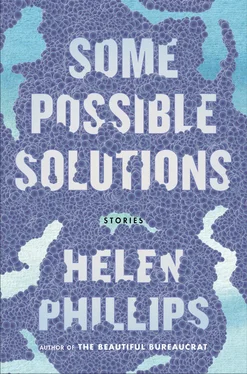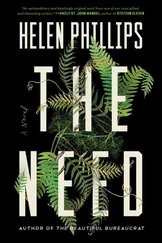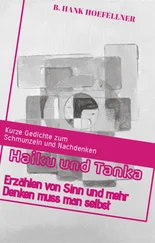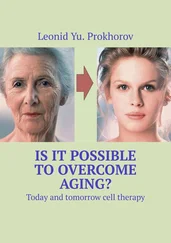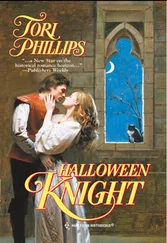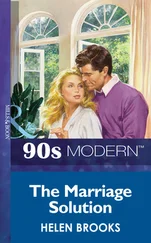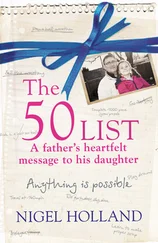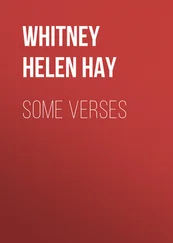“You don’t want that,” the maître d’ said simply, as though he already knew that in two days’ time I’d bust my knee while stomping my foot on the sidewalk during a fight with my husband, already knew that soon my husband would cup my face in his hands and truthfully say, “When I am an old man, I will look back on this as the happiest time of my life,” already knew that I’d truthfully reply, “When I am an old woman, I will look back on this as the happiest time of my life,” already knew that for years and years we’d alternate between the foot-stomping and the face-cupping, that I’d limp down the cereal aisle on my busted knee, that my heart would lift with joy in the produce section, that I’d wince among the pastas and laugh past the milk, back and forth, again and again, on and on, forever, until the day I once more entered the laundry room.
Our daughter knows the word “lawn,” of course she does, and the word still sounds green, it still sounds like leisure. And there are still people, rich people, like the Stanhopes on the other side of the wall, who have private lawns.
But when we take Lulu for a very special fifth birthday outing to the Botanical Gardens across the city (bus, subway, bus, grass for the masses) and promenade the lawn where the cherry trees are blossoming, she asks, “What’s all this grass for?” and then I feel bad, like why the heck didn’t we bring her here when she turned two, three, four?
And then I’m remembering that time last summer when we rode the subway out to the shore and I said, “Don’t you love the sound of the sea?” and she said, “Yeah, just like WaveMaker!” which is the machine we’ve used ever since she was born to try to drown out the sound of sirens and other bad things. And then I’m remembering when we took her to the urban stables, five-minute pony rides on the sidewalk for sixteen dollars a pop every Sunday morning, the dirty white pony (“Marshmallow”) stepping carefully among blowing candy wrappers, and though Lulu was so stiff with terror that I had to pull her off after forty-five seconds, she insisted I feed Marshmallow a few of the baby carrots we’d brought along.
The truth is we hadn’t taken her to the Botanical Gardens when she turned two, three, four, because we’d taken her there when she turned one. We’d set her down on the lawn, so pleased with ourselves, all ready to snap a bunch of photos, but she’d burst into tears — she was scared of the grass, she kept jerking her hands up as though the grass was burning her, she looked at us like, Hey, what’s wrong with the floor?
Lulu, five years old now, staring at the lawn at the Botanical Gardens. Lulu. A spritely, springy name. A name for feeling carefree. But our Lulu is serious. The friendly cashiers always say, “Those eyes !” but I can hear the note of fear. I get it. The largeness of her eyes. The darkness. My dark little thin little odd little glittering shadow child. I put my hand on her disproportionately large head, 90th percentile. Big brain, we told her when a kid on the playground said something a couple weeks back.
“It’s a lawn,” I explain. “For playing.” My throat surprises itself by clogging up. In the city parks, the streambeds are empty except for old soda cans, used condoms, dirty napkins, plastic bags, cigarette butts, rabies vaccination pellets. Back where I grew up, or I guess more accurately, back when I grew up, I was king of a creek.
“No,” Lulu corrects, pointing at a wooden sign: NO PLAYING ON THE GRASS.
Sarah gives that cold laugh of hers. “Kid’s right,” she says. Don’t get me wrong, Sarah is the best, my great big love, but she didn’t grow up anywhere where she could be king of a creek and sometimes that makes her less kind than, say, me.
“It’s for looking ,” I correct myself. “For en joy ing. For feeling the green in your eyes. The green in your bean.”
“The green in your dream,” Lulu plays.
“That’s my girl,” I say like a dad in a movie. I shoot a look at Sarah. Sarah smiles back at me. So nice. A family on a lawn, or near a lawn, at the Botanical Gardens on this fine day, half a decade into the life of Lulu, into the life of Sarah and Danny as parents.
“Well,” I say, “maybe you can’t play on it, but you can walk on it. Go ahead, Lu. Walk on the grass. Walk on it. It’ll feel nice.” I push her gently forward.
Lulu pauses at the boundary between the paved path and the grass. She dips her foot in its jelly sandal onto the grass as though the grass is a body of water with a dangerous current.
“It tickles,” she whispers.
“It’s nice, right?” I encourage. “It’s nice. Go ahead. Walk on it.”
I place my own foot on the lawn, the prickles of grass poking up between the holes in my sandals. In a sudden fit of exuberance, I throw myself down. Until this moment, I hadn’t realized that Lulu is old enough to find me embarrassing. I can see the love and the embarrassment fighting on her face as she watches me. But there’s no one nearby, and I decide to go all the way. I fling my legs out and lie star-shaped on the grass.
“Yodeleheho!” I say.
“Danny,” Sarah says. She too is half-ashamed, half-admiring the way I am. The joy I can contain. She points at a second wooden sign: NO WALKING, SITTING, OR LYING ON THE GRASS.
“There’s a guy coming,” Lulu says.
“Hello, guy,” I say unconcernedly. But I stand up, hoping I’ve gotten at least a couple of grass stains on my khaki shorts.
The Botanical Gardens employee changes course.
“Does this remind you of anything?” I ask Lulu, gesturing wide to encompass the rolling lawn, the trees and trellises, the prettiest place I have to offer her. I’m thinking of a print book we like to read together, an old textbook called Flora .
Lulu follows the sweep of my arm as it directs her gaze toward more green than she ever gets to see in one place.
She grabs my other arm and looks up at me soberly, hopefully, aiming to please.
“It reminds me of money,” she says.
* * *
I don’t knowif Lulu meant money because money is green, is the sort of green she sees more often than the other sort of green, or if she already understands that rich people have lawns whereas people like us don’t whereas some people don’t have produce or computers or homes. I didn’t want to probe, back there at the Botanical Gardens, but my mood did a nosedive, that’s for sure, a nosedive that’s landed me in the concrete enclosure behind our apartment building at ten o’clock at night, but I’m not out here to dump trash or recycling, I’m just checking on the moon, orange through layers of smog. The moon never looked this awesome when I was a kid. I stand there looking at it, challenging myself to ignore the smell of over-warm trash, until the moon scoots a couple inches and gets obscured by the wall.
On the other side of the wall, where the moon is still visible, the Stanhopes are splashing in their pool. I can hear it, alongside the noise of their generator, humming as it always hums, purifying the air on their lawn, incinerating the mosquitoes.
How do I know all this about the Stanhopes’ lawn? Well, there’s a hole, believe it or not, a tiny peephole at the place where the Stanhopes’ amalgamated quartz and rubber wall meets the side of our concrete enclosure, a fact that came to my attention some months ago, a fact that I haven’t shared with Lulu or Sarah because what good would it do them to see this. It is a wrong thing, one of the wrong things, how near to each other the rich and the not-rich live. Steve Stanhope is an inventor, or not an inventor, an investor in inventors — he finds the scientists who are doing the cool things and figures out how to get them to the people. I think you have to admire that.
Читать дальше
